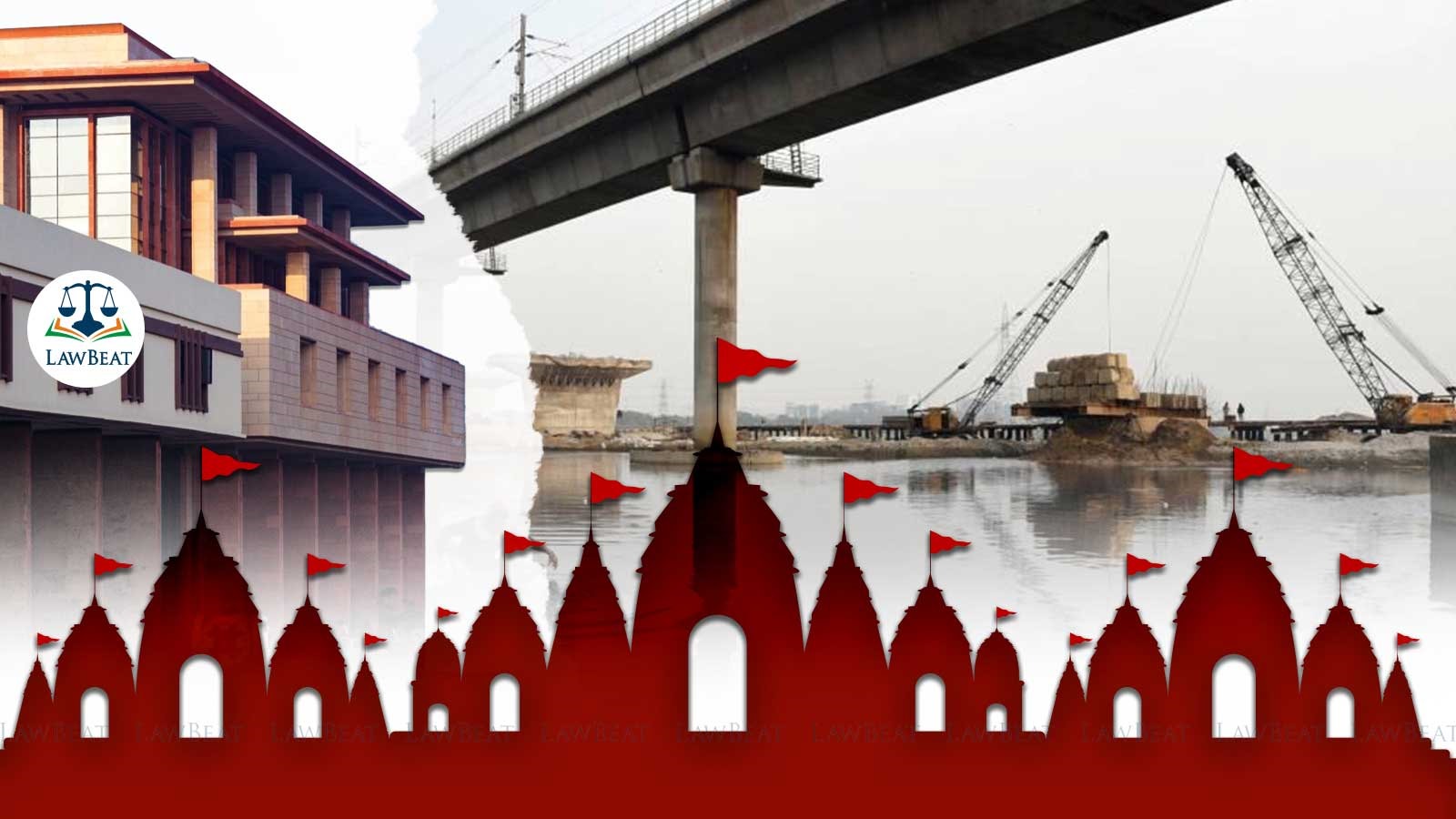‘Lord Shiva Would Be Happier If Yamuna Riverbed Is Cleared of Encroachments’: Delhi HC dismisses plea against demolition

A society asserted that the temple was founded by a distinguished priest known for establishing 101 Shiv Lingas, with this particular temple being one of those revered sites
The Delhi High Court, on Wednesday, said that there is no doubt that Lord Shiva would be more pleased if the Yamuna River bed and floodplain areas were cleared of all encroachments and unauthorized constructions. Court made such observations in a case filed by a registered society against the demolition of Shiv Mandir located in the Yamuna Riverbed.
“There could be no iota of doubt that Lord Shiva would be happier if the Yamuna River bed and the flood plains areas are cleared of all encroachments and unauthorised construction”, the bench of Justice Dharmesh Sharma held.
A society, registered under the Society Registration Act, 1860 as “Prachin Shiv Mandir Avam Akhada Samiti” filed a writ petition. The society, in September 2023, was notified by the police regarding the directive to demolish the temple. Despite the society's request for a formal notice, they were informed that none was available, and the actions were purportedly based on instructions from the Deputy Commissioner of Police.
Represented by Advocate Kamlesh, the society asserted that Article 25 of the Constitution of India ensured the freedom of religion for all citizens, including the liberty to manage religious matters. Temples and places of worship held profound religious significance for diverse communities, and their protection constituted a fundamental aspect of preserving the right to religious freedom.
Advocate Kamlesh argued that regular congregations at the temple facilitated interpersonal connections, fostering social ties, mutual assistance, and solidarity during both joyous and difficult times. Festivals and religious observances at the temple provided opportunities for collective involvement, enhancing community cohesion and distinctiveness.
The society contended that no formal written notice or order was served. Instead, the devotees were verbally informed that their Pracheen Mandir would be demolished the following day, with the explanation that another temple was being demolished on that day.
Additional Standing Counsel Arjun Pant appearing for the Delhi Development Authority (DDA) contended that the Pracheen Shiv Mandir was situated within the Restoration & Rejuvenation of Yamuna River Floodplain Asita East UP Land, extending from the ITA Barrage to the Old Iron Railway Bridge. Reference was made to directives from the National Green Tribunal (NGT), which prohibited illegal activities, including unauthorized religious structures, within the Yamuna Floodplain.
Further, ASC Arjun Pant submitted that the impugned directives were passed by the Lieutenant Governor of Delhi and senior DDA officials. On May 10, 2023, a DDA official inspected the area and identified 16 religious structures (15 temples and 1 Mazar). This finding was reported to the higher authority of DDA, who referred the matter to the Religious Committee due to its sensitive nature.
The court rejected the argument of the society that the State of UP was the land-owning authority and the DDA lacked authority. Firstly, the court noted that no documents were filed to show that the land in question was part of a decision between the State of UP and the DDA. Secondly, the DDA's standing counsel relied on a Memorandum of Understanding, assigning the DDA responsibility for the project on the Yamuna flood plain. The agreement specified that the DDA was responsible for quality works, liable for damages or delays, and must rectify any defects found during inspections.
“Be that as it may, the structure in question is apparently located on the Yamuna flood plains which have been developed by DDA pursuant to directions of the NGT”, the court observed.
The Supreme Court and NGT have issued multiple orders regarding Yamuna pollution, emphasizing the removal of encroachments and ensuring environmental protection. The land in question fell under the Zonal Development Plan for Zone-O, approved by the Ministry of Urban Development, and is intended for public interest purposes.
The Religious Affairs Committee's report also stated that the Mandir Cluster had no proof of its long-term existence and was not significantly populated. The society, registered in 2018, failed to provide documentation of its title or the temple's historical significance. There was no evidence that the temple was a public temple. “Mere fact that the prayers are offered at the temple every day and for that matter, there are special events on certain festive occasions does not convert the temple in question to a place of public significance”, the court clarified.
Consequently, the court held that the society failed to prove any vested rights to the land, and the DDA's actions were legally supported by various agreements and judicial directives aimed at protecting the Yamuna flood plains and serving the larger public interest.
“The land in dispute is meant for larger public interest and the petitioner society cannot claim any vested rights therein to continue to occupy and use the same”, the court opined. Accordingly, the court dismissed the petition.
Case Title: Pracheen Shiv Mandir Avam Akhada Samiti v Delhi Development and Ors (2024:DHC:4423)
